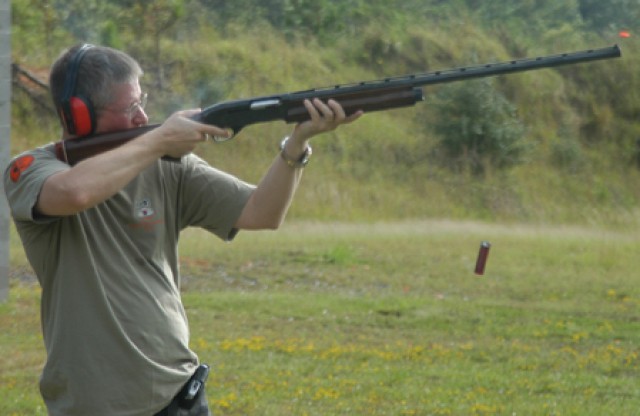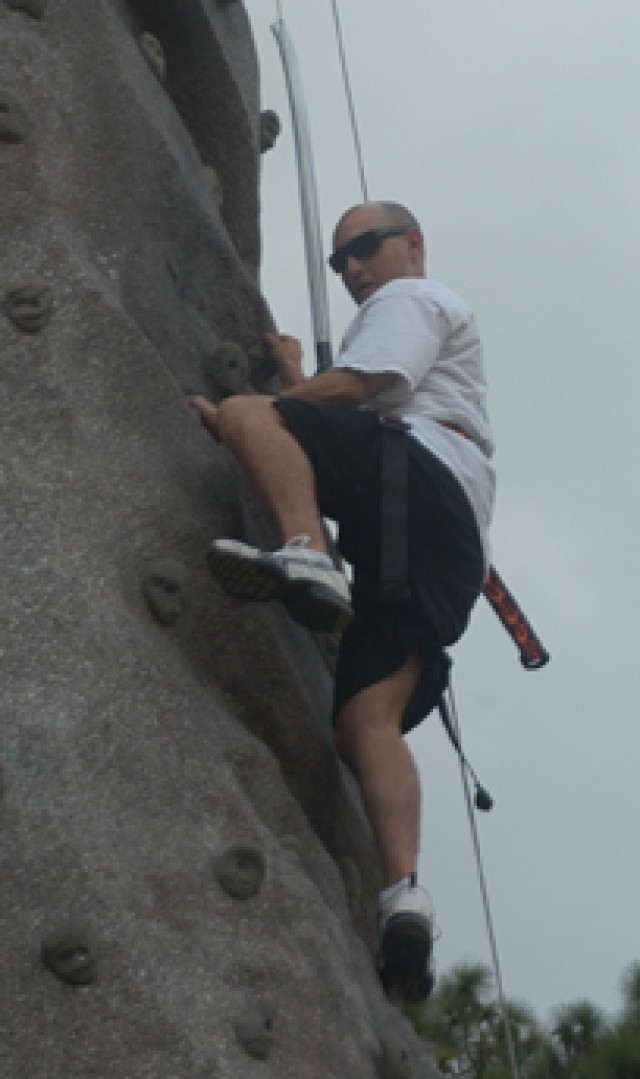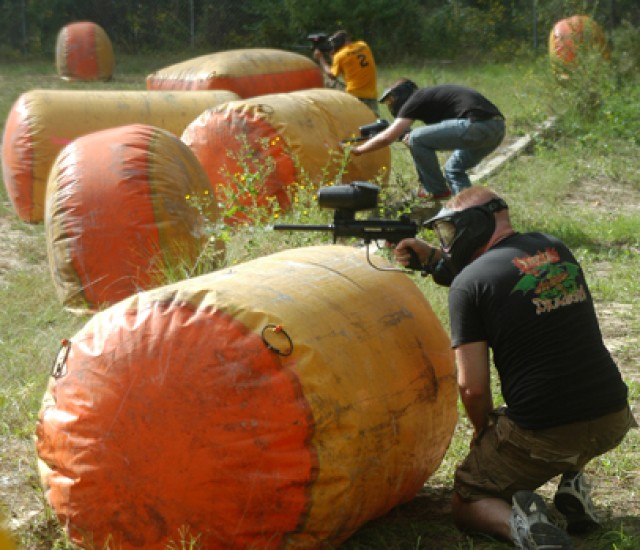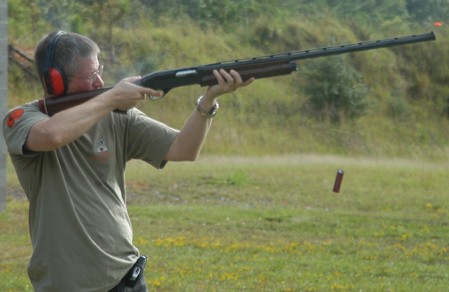FORT POLK, La. -- The statistics are frightening: Since the beginning of Operations Enduring Freedom and Iraqi Freedom, the number of Soldiers dealing with anger and aggression increased from 11 percent to 22 percent, and those planning to divorce their spouse rose from 9 percent to 15 percent after combat deployment. Calls to domestic violence hotlines for military spouses increased from 50 to 500 per month, and deaths in personally owned vehicles increased.
According to the Directorate of Family Morale, Welfare and Recreation, high adventure activities can serve as effective stimuli substitutes to Soldiers' dangerous behaviors and positively reinforce normal behaviors as they cope with the challenges of reintegration after deployment.
The 115th Combat Support Hospital, which redeployed in August after a 15-month deployment to Iraq, engaged its newest enemy Oct. 8: post-deployment stress. The unit participated in Warrior Adventure Quest, a program provided by DFMWR at the Fort Polk Recreational Shooting Range. WAQ allows redeployed Soldiers to engage in high-adrenaline activities in a safe environment. The event included archery, skeet shooting, rock climbing, paintball and mountain biking.
WAQ consists of four parts:
- Leader training
This phase emphasizes the importance of unit leadership maintaining contact with their Soldiers.
- Soldier training
This training helps Soldiers recognize the importance of an effective transition, coupled with an opportunity for adventure therapy.
- High-adventure activity
Soldiers engage in supervised, informal adventure activities like paintball, bungee jumping or white water rafting.
- Leader led debrief
In this phase, Soldiers learn coping skills for managing combat experiences; instructors provide "Armor for Your Mind."
"This has been an awesome event today," said Col. Patricia Darnauer, commander, 115th Combat Support Hospital. "The FMWR folks have given us tremendous support -- the NCOs and Soldiers did a great job organizing it on short notice and the Soldiers are having a blast.
"The 115th redeployed from 15 months in Iraq in August. The command sergeant major and I took over later that same month. It was a potentially dangerous time to have new leadership come into the organization. Despite the circumstances, everyone came back from block leave safely, without any significant issues.
"During block leave, the Soldiers showed professionalism and a willingness to ask for help when it was needed," she said. "I appreciate the fact that they are doing the right thing, on and off duty."
Nate Greene, Fort Polk WAQ program manager, explained the structure of Fort Polk's program. "We operate at three locations: the recreational range, Alligator Lake and Toledo Bend Recreation Site," he said. "We can adapt the program to fit the unit's preference though. We are not limited to Fort Polk locations. The unit can ask me for an activity and it's my job to find it, as long as it fits in the budget." Greene has supported 15 units since joining the Fort Polk program this year. "We have had some high-speed events at TBRS -- it allows the Soldiers to get a thrill."
Command Sgt. Maj. Timothy Motes, 115th, said WAQ was a valuable experience for the unit. "It's a good way to reintegrate," he said. "It gives leaders a chance to see their Soldiers outside of the work environment. The Soldiers love it -- I hope FMWR does this for the foreseeable future. Everything we asked for, they delivered."
Spc. Jonathan Brewer, B Company, confirmed Motes' claim. "It was a blast," he said. "Paintball was fun, it was fast-paced and gave me an adrenaline rush."
"This was an opportunity for us to have a high-adrenaline event to measure how well the Soldiers are dealing with their stress," Darnauer said. "I strongly recommend this to any unit that has returned from a deployment. The bonding, adrenaline and the facilities are great. It's a good opportunity for Soldiers transitioning from a deployed environment to a training environment."






Social Sharing